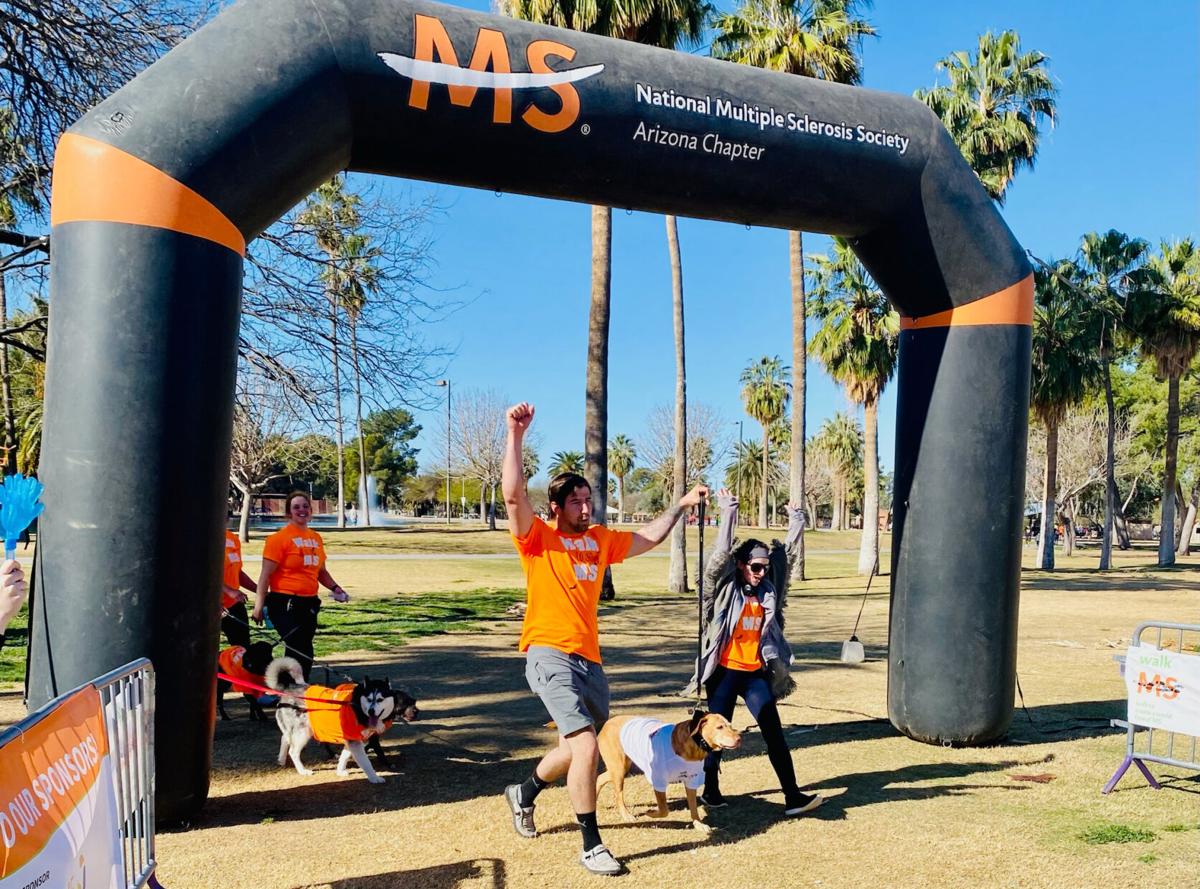We are on the cusp of spring and the Arizona chapter of the National Multiple Sclerosis Society is kicking off the season for walks here with Walk MS.
The signature fundraiser for the nonprofit seeks to raise $50,000 while bringing people together to provide support and information to those living with MS and their families.
“This in-person event is also an opportunity for the 15,000 people living with MS in Arizona to connect with the community. Making connections with others makes a huge difference when you are living with this disease,” said Jessica Allard, manager of Walk MS Tucson.
MS is a chronic autoimmune disease in which the body attacks myelin sheaths surrounding nerves and impairs the normal functions of the central nervous system. Symptoms can include numbness and tingling in the limbs, mobility challenges, paralysis, loss of vision, fatigue, balance and coordination issues, and cognitive problems. The diverse presentation of symptoms often makes diagnosis difficult.
“I liken MS to a fingerprint. Nobody has exactly the same collection of symptoms and issues that another person does, but they may share similarities. People who don’t have MS often don’t understand, but coming together with others provides fellowship as well as information and ideas about ways to improve our daily lives,” said Cindy Lewis, a long-time volunteer for the National MS Society Arizona Chapter.
Lewis also is co-facilitator with Rachel Thomas of the Tucson Northwest MS Self-Help Group that meets at 10 a.m. on the second Monday of each month at St. Andrew’s Presbyterian Church, 7650 N. Paseo Del Norte.
Self-help and support groups are also available virtually; find more information at nationalmssociety.org/Chapters/AZA.
Lewis said events such as the walk also provide an opportunity to promote awareness about MS, which afflicts three times more women than men, and about available therapies. Thus far, 24 disease-modifying drugs have been developed to treat MS, many of which are the result of more than $1 billion in research funded by the National MS Society and other partners. The organization also provides advocacy, education and resources for those impacted by the disease.
Get your morning recap of today's local news and read the full stories here: tucne.ws/morning





